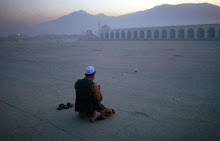 There is that story about a bull frog that wanted to be the biggest
and kept puffing himself up till he burst. Now everyone knows, of
course, that a bubble if it continues to expand must at some point burst
and splatter everybody around it. So it is with an empire, real estate
or some other kind, that crashes when it has overextended itself or made
so many enemies that it cannot handle them. This is what the real
estate tycoon Malik Riaz has discovered when for reasons best known to
him he decided to go public with information damaging for a particular
individual and a specific institution. Inevitably the focus has shifted
to him and his activities and the spectrum is widening by the day---in
fact by the minute.
There is that story about a bull frog that wanted to be the biggest
and kept puffing himself up till he burst. Now everyone knows, of
course, that a bubble if it continues to expand must at some point burst
and splatter everybody around it. So it is with an empire, real estate
or some other kind, that crashes when it has overextended itself or made
so many enemies that it cannot handle them. This is what the real
estate tycoon Malik Riaz has discovered when for reasons best known to
him he decided to go public with information damaging for a particular
individual and a specific institution. Inevitably the focus has shifted
to him and his activities and the spectrum is widening by the day---in
fact by the minute.
The fact that meticulous records were kept of all payments, hotel bills, credit card receipts and videos made of hotel rooms and people suggests that there was a definite purpose behind recording the purportedly extorted money. There must have been the idea that at some point the whole exercise would be turned into a sting operation to destroy the person who was supposed to play ball in return for the favors being given. This is what has happened and the reason advanced by the tycoon for going public at this stage is that he was tired of doling out cash and getting nothing in return--- the classic methodology for becoming the underdog in public perception by presenting himself as the victim of blackmail by the offspring of an authority figure—the Chief Justice---and insinuating much more by hinting at meetings in the dead of night and other shenanigans.
The media has gone berserk with all TV anchors in overdrive. A list of media people has surfaced on the net with details of how much each was paid by the tycoon in cash and kind sending some of them into steep tailspin without any control. Many are using the airspace available to them to defend themselves and those not in the list are making sure that the listed ones stay in the limelight. The listed ones are trying to widen the net by dragging in the tycoon’s deals with the military and in desperation even hinting at the kin of other powerful figures being involved in shady deals. The picture that is emerging is not a pretty one but it is a familiar one---rags to riches tycoon who brags openly about his ability to get his way through bribes and of his connections with the high and the mighty and those with influence. Also in the picture are those who become his beneficiaries without realizing that there is no such thing as a free lunch. The ones on the receiving end are predicting long term consequences in the hope that they will frighten those in authority to activate damage control. The public reeling from inflation, power outages, lawlessness and the lack of human security waits for the furor to subside knowing that it will.
The few who are looking beyond this non-episode are more worried about the declining economy, the internal destabilization, the economic collapse and the external isolation staring us in the face. While the media is busy using smoke and mirrors to embroil the nation in a case that has no implication for the common man, it is now incumbent on the judiciary to put this case to rest as soon as possible. What might be a vitriolic attempt to malign the last standing uncorrupt institution in the country could be dealt with savoir faire and save face for the entire nation that teeters on the brink of hysteria.
By Ghalib Sultan
Courtesy: Zone Asia PK

Comments
Post a Comment